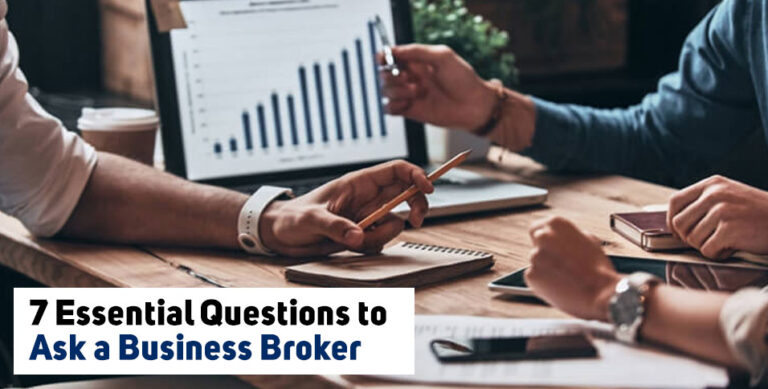When you’re selling your business in Brisbane, you’re going to want a good business broker to handle the sale. But, finding a good broker might not be as easy as you think. Sure, a few brokers do a good job, but that doesn’t make them the right broker for you. You want a broker who will have experience in your industry, understand your needs and have your best interests in mind throughout the sale.
To find such a broker, you must ask a few questions as you review your options. Questions like:
1. Do you have experience selling business in the same industry as mine?
When looking for someone to help you sell your business, you don’t want them doing any guesswork; you need someone who has extensive experience with your kind of business. When you consider how different the running costs of a restaurant are compared to those of a laundromat, you also understand that the value is going to differ. Choose a business broker who knows nothing about selling your kind of business, and you risk selling it for way less than what it’s worth.
2. What is your sales turnaround?
At the end of the day, a business broker needs to be a good salesperson. If they are, they should have a favourable sales turnaround, particularly with businesses that are similar to yours. If a brokerage has not sold many businesses in your category, or just in general, this is a good sign to keep on looking. There are going to be a lot of brokers who are smooth talkers, but remember, you want to see results, and a sales turnaround is a good indicator of how well they can sell your business.
3. Do you work from an office or home?
You might think, what does it matter if someone is working from home or from an office, especially seeing as though most professionals are now working from a virtual environment to minimise costs? It just makes sense, right? Well, this is okay for most professions, but generally, when a broker tells you they work from home, this could indicate that they are only working part-time. You want a broker that is going to give your business their full attention.
Working with Melbourne-based business brokers who work from an office means you’ll have access to a huge team of brokers who offer a professional setting when you’re negotiating with potential buyers.
4. How many listings do you currently have?
You want to always find out how much time and effort a broker can devote to the sale of your business, and a good way to do this is to ask them about how many listings they currently have. Brokers who have a large number of listings generally means they will not have a lot of time to spend working on your sale, or they’ve adopted an approach where they take on as many listings as possible and leave it up to marketing to get the job done. A broker with a manageable amount of listings, say between 15 to 20 clients, is usually a good sign that they are intentional with the sales of their listings.
5. What is your confidentiality policy?
A key to getting the best price for your business is confidentiality. As soon as the cat’s out of the bag that your business is up for sale, this could disrupt everyone from potential buyers to clients to employees, so it’s best to keep things on the low until the sale is near completion. In order to do this, ensure that you know what policies the brokerage has in place to keep the details of your business sale confidential.
6. How do you evaluate a business?
A good business broker will be able to give you a realistic valuation of your business and an in-depth pricing strategy. If you throw out an obscene number and they agree to it, it signifies that they have not done the proper research, and you’ll be wasting your time with them. Experienced business brokers know that no sale means there’s no commission, so they can’t put your business on the market for an unrealistic price.
7. Do you assist with the sales contract?
You’ll know if a broker really means business when they’re able to help you with drafting all the legal documents and know how to structure deals in multiple ways. On top of that, your business broker should always advise you to hire an independent legal team because while they can assist with the initial paperwork and structuring, they’ll know that it’s best to have a lawyer review it before things need to be signed.
Final Thoughts
By asking these questions, you’ll be able to identify red flags from brokers that you’ll want to stay clear of. You’ll also build a better understanding of how the broker you hire will manage your business’s sales and get a chance to build a bit of rapport with them before the process begins. This will help the sale run smoother and more efficiently.
Also Read: Forex Licenses: Navigating the Global Landscape for Brokers















